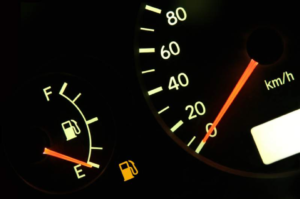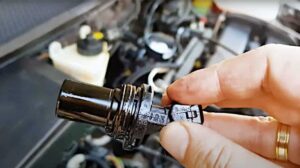Car Stalls While Driving? Understanding Why Your Vehicle Dies On The Road
There are few things more unsettling and frustrating than driving along, minding your own business, when suddenly your car sputters and dies right in the middle of the road. It's not only a major inconvenience but can also be incredibly dangerous. If you've experienced your car shutting off while driving, you know the feeling of panic that sets in. What causes a car to turn off while it's in motion? And more importantly, how can you fix it and prevent it from happening again?
This article will break down the possible causes of this alarming problem and, most importantly, how you can diagnose and solve it. We'll explore everything from common mechanical issues to electrical glitches, providing you with the knowledge to act now and avoid further problems with your vehicle.
What to Do Immediately When Your Car Dies on the Road
Before diving into the "why," let's address the immediate "what to do." If your vehicle suddenly shuts off while you're driving, the first and most crucial step is to remain calm. Panicking will only make the situation worse. Here's what you should do:
- Don't Panic: Keep a clear head.
- Steer to Safety: If you still have some momentum, try to coast your car to the side of the road or into a safe pull-off area. You might lose power steering and brakes, but they will still function, just with more effort.
- Activate Hazard Lights: Make your vehicle visible to other drivers immediately.
- Apply the Emergency Brake: Once safely stopped, engage your parking brake.
- Attempt to Restart: After a brief moment, try to restart your car. Sometimes, a simple restart can get you going, especially if the issue is intermittent. If it restarts, proceed with caution and head directly to a mechanic. If it doesn't, or if it dies again, do not continue driving.
Why Does My Car Shut Off While Driving? Common Causes
When a car turns off while running, there are many reasons why this might happen. Often, it's a signal that something in the engine system isn't functioning correctly. Let's explore the most common culprits:
Fuel System Issues
Your engine needs a constant, steady flow of fuel to operate. Any disruption in this supply can cause your car to stall. Problems in the fuel system are among the primary reasons for a car to shut off unexpectedly.
- Defective Fuel Pump: If your car turns off while driving and then suddenly restarts, a faulty fuel pump could be the cause. The fuel pump is responsible for delivering fuel from the tank to the engine. If it's failing, it might deliver an inconsistent flow, causing the engine to starve of fuel and shut down. Intermittent issues are a classic sign of a dying fuel pump.
- Clogged Fuel Filter: A dirty or clogged fuel filter can restrict the flow of fuel to the engine, especially under acceleration, leading to a stall.
- Low Fuel: While seemingly obvious, sometimes the simplest explanation is the correct one. If your fuel gauge is inaccurate or you simply ran out of gas, your car will definitely shut off.
Electrical System Malfunctions
Modern cars rely heavily on their electrical systems. A fault in this area can cut power to critical components, causing the engine to die.
- Failing Alternator: The alternator is responsible for generating electricity to power your car's electrical systems and recharge the battery while the engine is running. If the alternator isn't working correctly, the battery will eventually drain, and once it runs out of juice, your car will shut off. Symptoms often include dimming headlights, a battery warning light on the dashboard, or other electrical components failing before the car dies.
- Faulty Battery: While less likely to cause a car to die *while driving* (as the alternator should be powering things), a severely weak or failing battery combined with a struggling alternator can contribute to a shutdown.
- Loose or Corroded Battery Terminals: Poor connections can interrupt the flow of electricity, leading to intermittent power loss and stalling.
- ECU (Engine Control Unit) Problems: The ECU is your car's brain. If there are defects or malfunctions in the ECU, it can send incorrect signals (or no signals at all) to critical engine components, causing the car to shut off.
- Wiring Issues: Damaged, frayed, or shorted wiring can disrupt power to various sensors or components, leading to a sudden shutdown.
Ignition System Defects
The ignition system is what creates the spark to ignite the fuel-air mixture in your engine. Problems here mean no combustion, and thus, no power.
- Faulty Ignition Coil(s): Ignition coils transform battery voltage into the high voltage needed for spark plugs. If a coil fails, the corresponding cylinder won't fire, leading to misfires or, if multiple coils fail, a complete engine shutdown.
- Bad Spark Plugs: Worn or fouled spark plugs can lead to poor combustion and, in severe cases, cause the engine to stall.
- Ignition Switch Issues: A worn or faulty ignition switch can intermittently cut power to the engine while driving, causing it to die.
Sensor Failures
Sensors are the eyes and ears of your car's computer. When they fail, the ECU receives incorrect data, leading to improper engine management and potential stalling.
- Damaged or Defective Crankshaft Position Sensor: This is often cited as the most common problem when a vehicle shuts off out of nowhere while you're driving. The crankshaft position sensor monitors the rotational speed and position of the crankshaft, which is crucial for the ECU to determine engine speed and timing for fuel injection and spark. If this sensor fails, the ECU loses this vital information, causing the engine to shut down immediately.
- Dirty or Faulty Throttle Body: If your car lowers its RPMs and then shuts off, it's a sign that something in the engine's air intake system isn't functioning correctly. More specifically, with the throttle body. The throttle body regulates the amount of air entering the engine. If it's dirty or malfunctioning, it can lead to an improper air-fuel mixture, causing the engine to stall, especially when not kept accelerated.
- Mass Airflow (MAF) Sensor: This sensor measures the amount of air entering the engine. A faulty MAF sensor can provide incorrect readings, leading to an improper air-fuel mixture and stalling.
Symptoms to Watch For
Sometimes, your car will give you hints before it completely dies. Paying attention to these symptoms can help you diagnose the problem early:
- RPM Drop: If your car's revolutions per minute (RPMs) drop significantly before it shuts off, it's a strong indicator of an underlying issue, often related to fuel or air intake.
- Intermittent Starting Issues: One common scenario is when the car turns off after driving a few kilometers. Sometimes it restarts immediately, and other times it takes 5 to 10 minutes to restart. This points towards an intermittent fault, possibly with the fuel pump or a sensor.
- Warning Lights: Keep an eye on your dashboard. Lights like the "Check Engine," "Battery," or "Oil Pressure" can illuminate before a stall.
- Unusual Noises or Smells: Any new or strange sounds or burning smells could indicate a serious problem.
How to Address the Problem and Find a Solution
When your car frequently shuts off, the solutions to this problem can vary from simple fixes to more complex repairs. The most important step is accurate diagnosis. While some issues like low fuel are easy to spot, others require professional expertise.
- Professional Diagnosis: Given the complexity of modern vehicles and the potential danger of a car stalling, it's highly recommended to have your vehicle inspected by a qualified mechanic. They have the diagnostic tools to pinpoint the exact cause, whether it's a fuel pump, crankshaft position sensor, alternator, ECU, or ignition system issue.
- Regular Maintenance: Many of these issues can be prevented with routine maintenance. Regularly check your fuel filter, air filter, battery terminals, and ensure your car receives its scheduled tune-ups.
- Don't Waste Money: Understanding the possible failures can help you avoid unnecessary repairs or "throwing money at the problem." A proper diagnosis ensures you only pay for what needs fixing.
Conclusion
A car that shuts off while driving is a serious issue that demands immediate attention. From failures in the fuel system and electrical problems to defects in the ignition system and sensor malfunctions, there are many reasons for this situation. Knowing the possible causes, such as a faulty fuel pump, a defective crankshaft position sensor, or a failing alternator, can help you understand what might be happening under the hood.
While it can be frustrating and dangerous, staying calm and taking immediate safety measures are crucial. Don't ignore the warning signs, like dropping RPMs or intermittent starting. By understanding the common causes and seeking professional help for accurate diagnosis and repair, you can get your vehicle back on the road safely and avoid future breakdowns. Act now to solve this problem and ensure your peace of mind while driving.
- Agencia De Empleos En Miami
- Chicken Club Salad Jasons Deli
- James Breeden
- Campo De Fãºtbol El Molino
- Brandon Barnhart

¿Por qué mi carro se apaga andando? (+7 causas)

¿Por qué mi carro se apaga andando? (+7 causas)

¿Por Qué se Apaga el Carro Andando? Causas y Soluciones Comunes